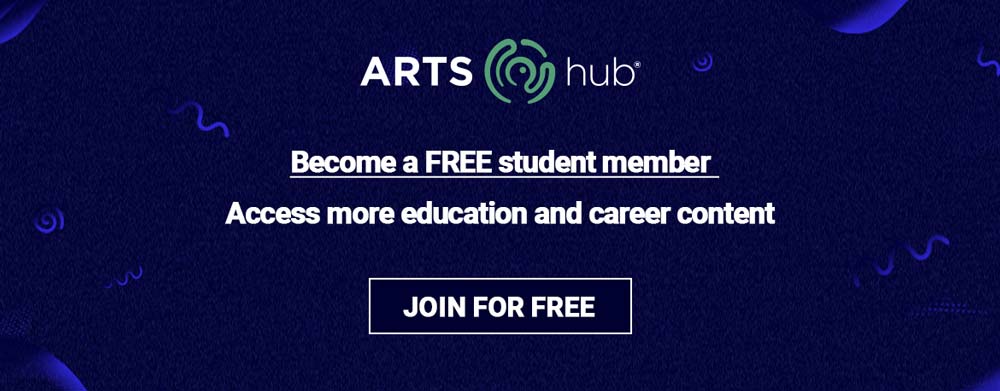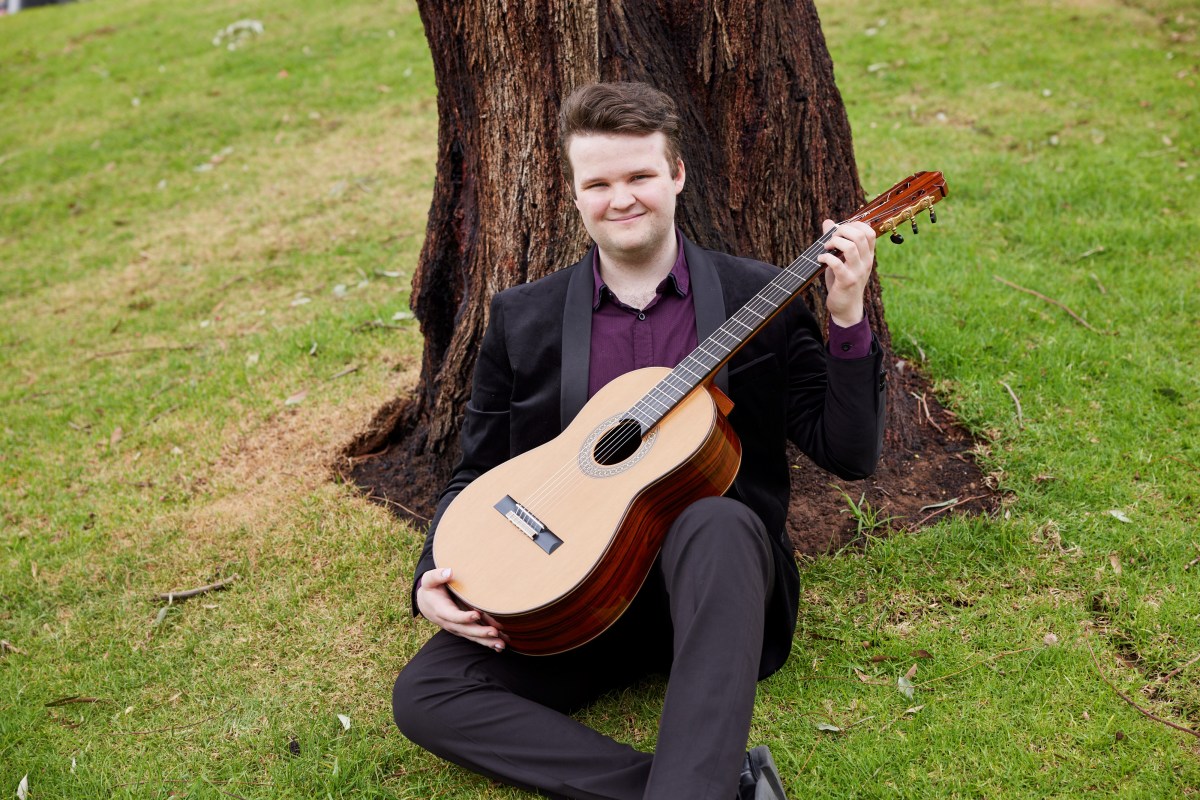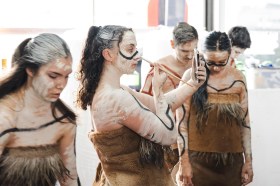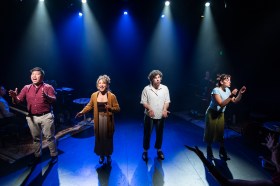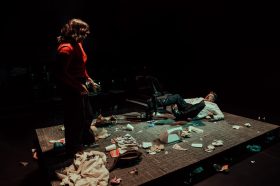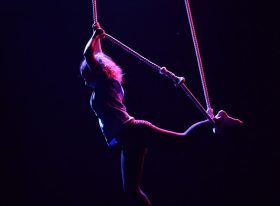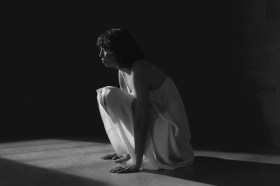Connor Whyte says the only thing that gets him out of bed in the morning is playing guitar. That single-minded passion has contributed to Whyte taking first place in the 2022 Adelaide International Classical Guitar Competition. He was the first South Australian to win the $10,000 award since its inception in 2010.
Praised for his ‘sublime and sensitive performances’, Whyte is quickly emerging as a remarkable concert guitarist and, on 14 July, he appears as special guest to seven-time ARIA winner Joseph Tawadros at the Adelaide Guitar Festival.
Whyte’s win – which included the prize of a Jim Redgate guitar valued at $23,000 – came at the end of his time in the Guitar Winter School, a week-long intensive program of immersive guitar-playing and skills development that is part of the Adelaide Guitar Festival.
ArtsHub asks Connor Whyte about his experience at the Guitar School, his mentors and the musicians who inspire him.
Why did you choose to attend the Guitar Winter School at the Adelaide Festival Centre?
My first time attending the Adelaide Guitar Festival Guitar Winter School would probably be attributed to my classical guitar teacher at the time, who recommended the school to me. From there my new teacher Andras Tuske also recommended it, but I probably would’ve come back anyway since I had such a great time in the first Summer School in 2016.
How long have you been playing guitar and what led you to participating in the Winter School?
I first started learning electric guitar techniques when I was about eight years old because that’s what my older brother played and I looked up to him. When I was 10 I played a rock/metal version of W A Mozart’s ‘Rondo Alla Turca’ at my school’s talent show, where the classical guitar teacher at the school, Ian Seaborn noticed me and suggested that I learn how to play classical guitar since I was playing a classical piece on my electric guitar. He was the one who suggested the Winter School to me in the first place.
What was the best part about the week, and what did a typical day look like?
The best part of the week was definitely the culmination of our hard work in the performance, which was on the last day. It’s really fun to be in an environment of 50+ hard-working guitarists under Paul Svoboda’s baton.
In the beginning of the school, we usually begin working in sectionals, making sure that each part is able to play with their other section members. Towards the middle of the week, we start grouping the entire orchestra together alongside the occasional soloists, which I was able to fulfil one year, playing the solo parts of Paul Svoboda’s ‘Aurora’.
Read: The guitar industry’s hidden environmental problem, and the people fixing it
What advice would you give someone else wanting to get the most out of the Guitar Winter School?
As well as all the things you learn about playing the guitar, if you are serious about becoming a professional, I would suggest using the opportunity that the Winter School presents to make yourself known. You can do this first by playing your best, which often gets recognised – one year a prize was given to three hardworking students – as well as talking with the teachers and other professional performers who come along to visit.
What kind of work or study are you involved in now?
At the moment, I am completing a Bachelor of Music (Honours) at the ANU in Canberra under the tutelage of Minh le Hoang and Tim Kain.
Has your ambition for what you want to specialise in changed in any way since attending the school and winning the award in 2022?
Nothing has really changed in this regard. I think I’ve always wanted to be a performer. Guitar Winter School helped me gain vital skills to do so, and winning the [Adelaide International Classical Guitar] Competition has, and will continue to help me achieve this goal.
Do you have, or would you like, a mentor?
My mentors, I suppose, would be my teachers along the way. In Adelaide, these were Oliver Fartach-Naini, with whom I studied at the Elder Conservatorium, Slava Grigoryan who taught me privately, as well as Andras Tuske who was my guitar teacher throughout high school. Now in Canberra, Minh le Hoang teaches me at the ANU and Tim Kain privately. Each has helped in their own way, both on the playing side of things, as well as making sensible career choices.
If you weren’t playing and performing with guitar, what would you be doing instead?
If I wasn’t playing guitar for a career, I think I would be unemployed. Nothing really gets me out of bed in the morning except music.
Can you give us one tip about being a professional musician that you wish someone had told you?
Although I’m definitely not qualified to answer this question, since I am really only in the beginning stages so far, one thing I would suggest, which has helped me, is to go to concerts, especially guitar ones. This is where all the action is. As well as being inspired by the great artists you will witness, going to concerts gives you an opportunity to meet the artists on stage and in the audience, which allows you to network – critical in having a successful career as a performing artist. It’s not just about the playing. If you are the best player in the world, but you sit at home all the time and don’t put yourself out there you won’t be successful.
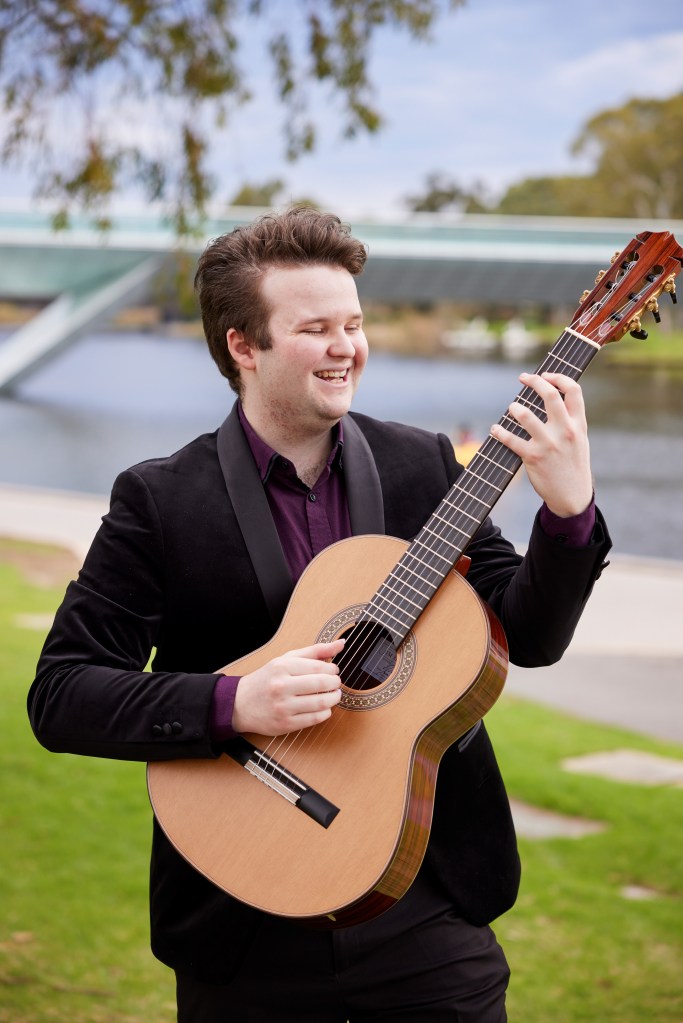
Ideally, five years from now, what would you be doing?
In five years, I hope I am continuing to further my career as a performer, playing more concerts, some outside of Australia too hopefully.
Who are three artists/writers/musicians whose work inspires you?
The first artist who inspires me is the great composer J S Bach. Bach has to be my favourite composer of all time and, thankfully, so many of his works are excellent on the classical guitar. In the final round of The Adelaide International Classical Guitar Competition, I played a Chorale Prelude by Bach, which he originally wrote for the organ, and I arranged for the guitar.
Next would probably have to be the guitarist Marcin Dylla. His technical mastery and musicality make up an incredible artist, one that I would heavily recommend people should listen to.
Last, I would have to say that one other artist who inspires me is the guitarist Marko Topchii (Ukraine) , who actually won The Adelaide International Classical Guitar Competition back in 2016. His repertoire choices are some of my absolute favourites. As well as being an excellent musician, he brings to the table a lot of performance skills and stage presence, something I think classical musicians tend to forget is important.
The Adelaide Guitar Festival runs 1-16 July 2023 at the Adelaide Festival Centre.
The Guitar Winter School runs 10-14 July 2023, and the two programs on offer are Blues and Roots and Adelaide Guitar Festival Orchestra.
